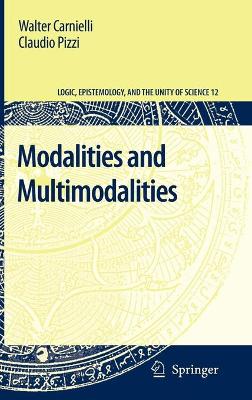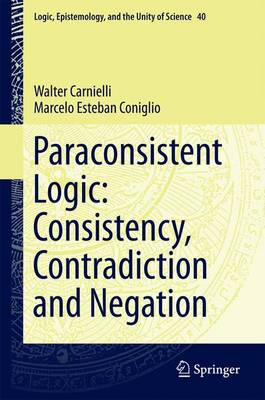Logic, Epistemology, and the Unity of Science
2 primary works
Book 12
Book 40
Paraconsistent Logic: Consistency, Contradiction and Negation
by Walter Carnielli and Marcelo Esteban Coniglio
This book is the first in the field of paraconsistency to offer a comprehensive overview of the subject, including connections to other logics and applications in information processing, linguistics, reasoning and argumentation, and philosophy of science. It is recommended reading for anyone interested in the question of reasoning and argumentation in the presence of contradictions, in semantics, in the paradoxes of set theory and in the puzzling properties of negation in logic programming. Paraconsistent logic comprises a major logical theory and offers the broadest possible perspective on the debate of negation in logic and philosophy. It is a powerful tool for reasoning under contradictoriness as it investigates logic systems in which contradictory information does not lead to arbitrary conclusions. Reasoning under contradictions constitutes one of most important and creative achievements in contemporary logic, with deep roots in philosophical questions involving negation and consistency
This book offers an invaluable introduction to a topic of central importance in logic and philosophy. It discusses (i) the history of paraconsistent logic; (ii) language, negation, contradiction, consistency and inconsistency; (iii) logics of formal inconsistency (LFIs) and the main paraconsistent propositional systems; (iv) many-valued companions, possible-translations semantics and non-deterministic semantics; (v) paraconsistent modal logics; (vi) first-order paraconsistent logics; (vii) applications to information processing, databases and quantum computation; and (viii) applications to deontic paradoxes, connections to Eastern thought and to dialogical reasoning.

